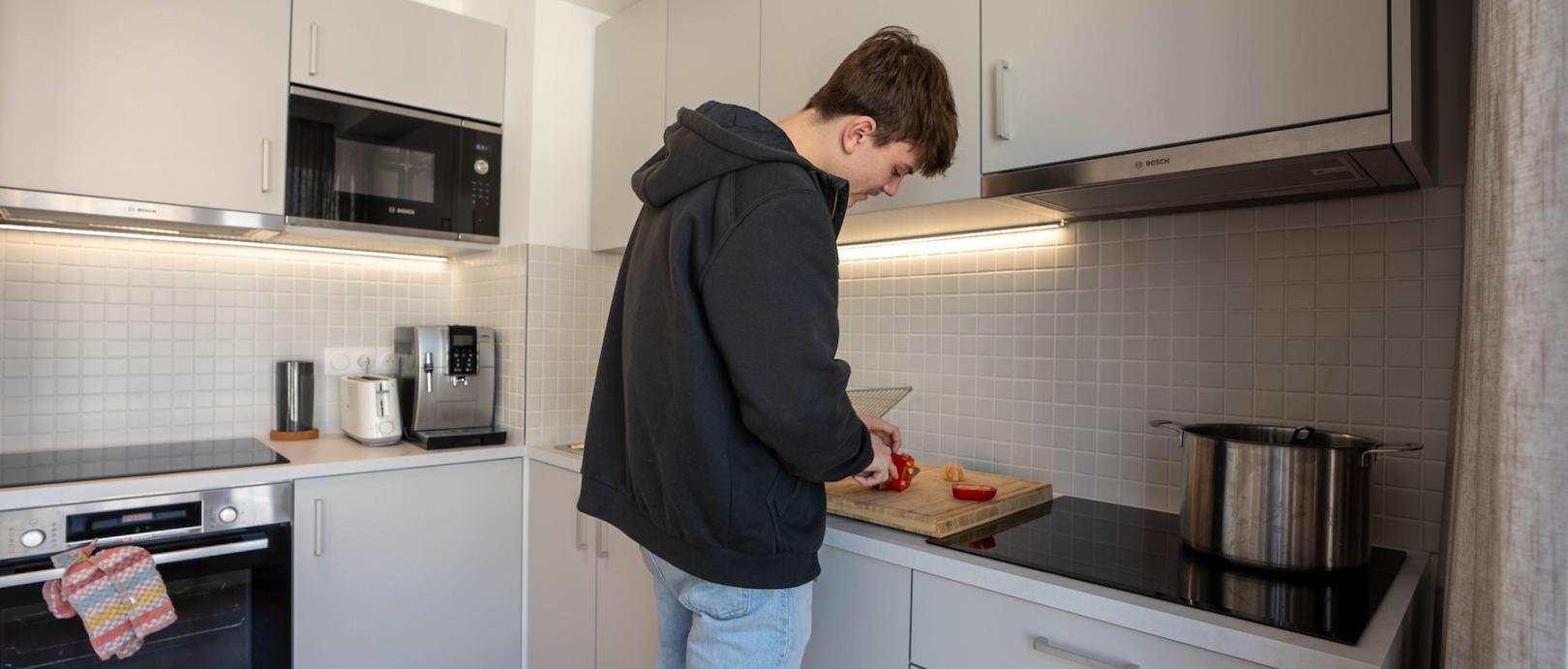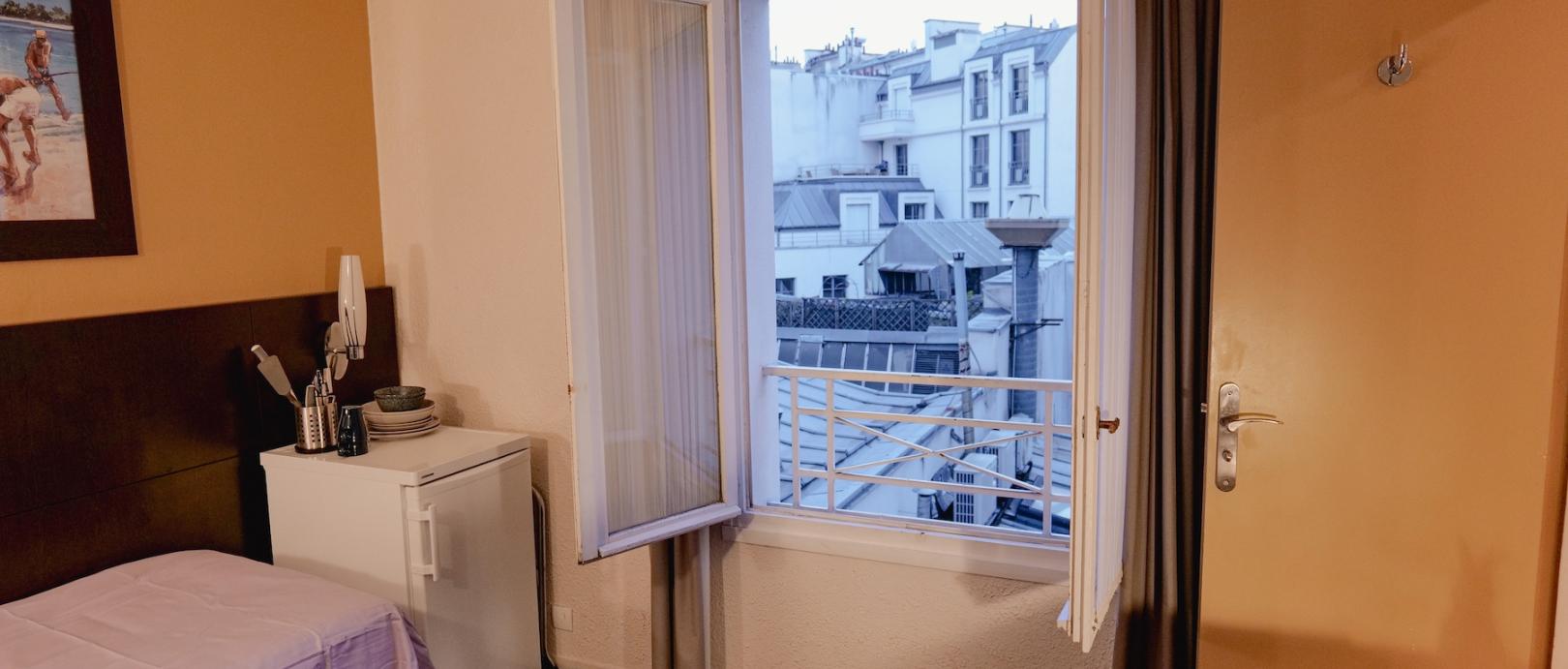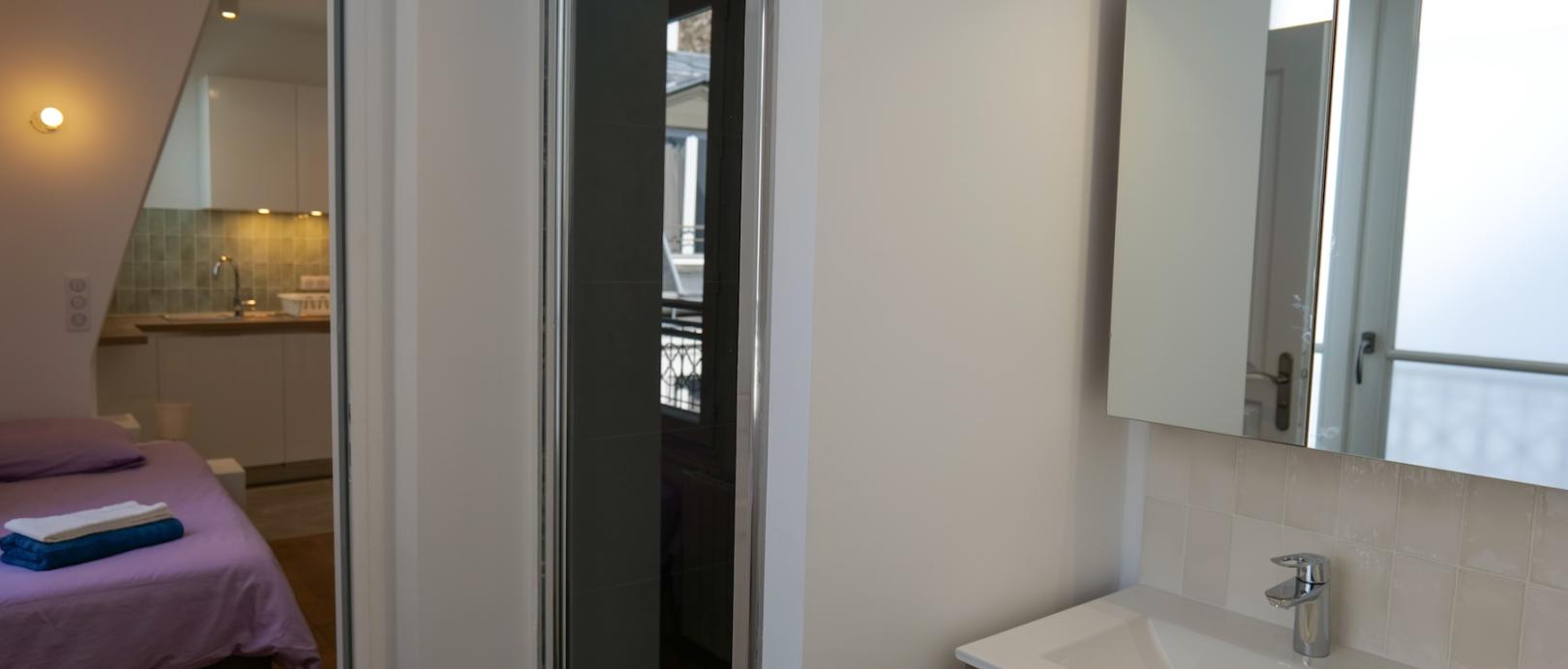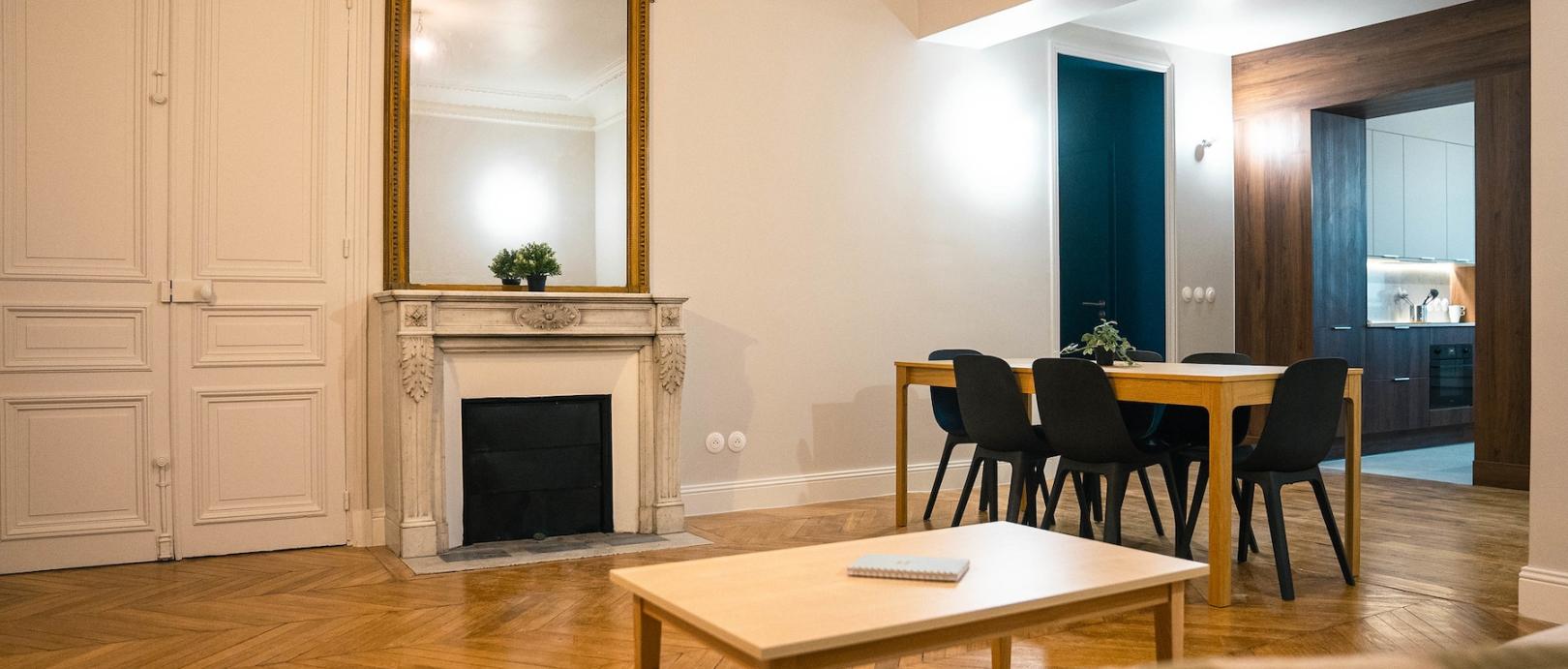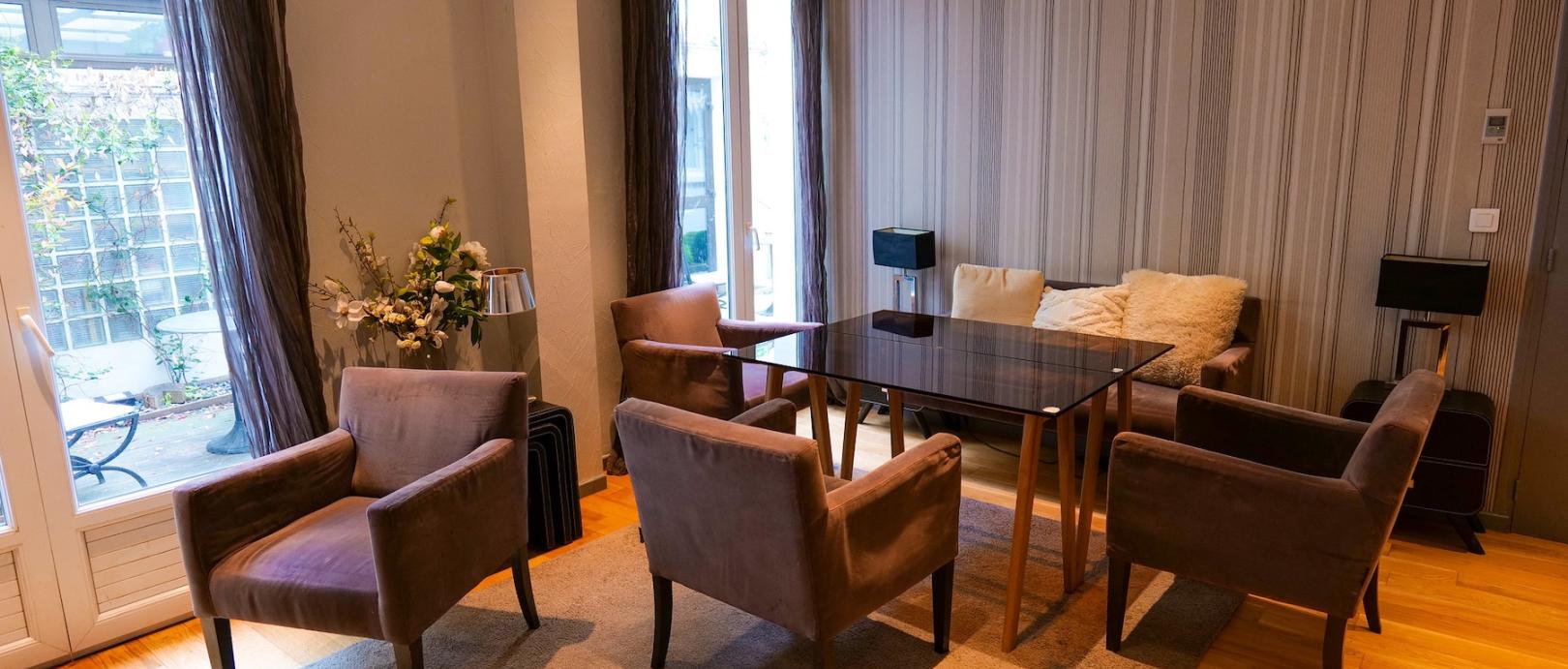Housing
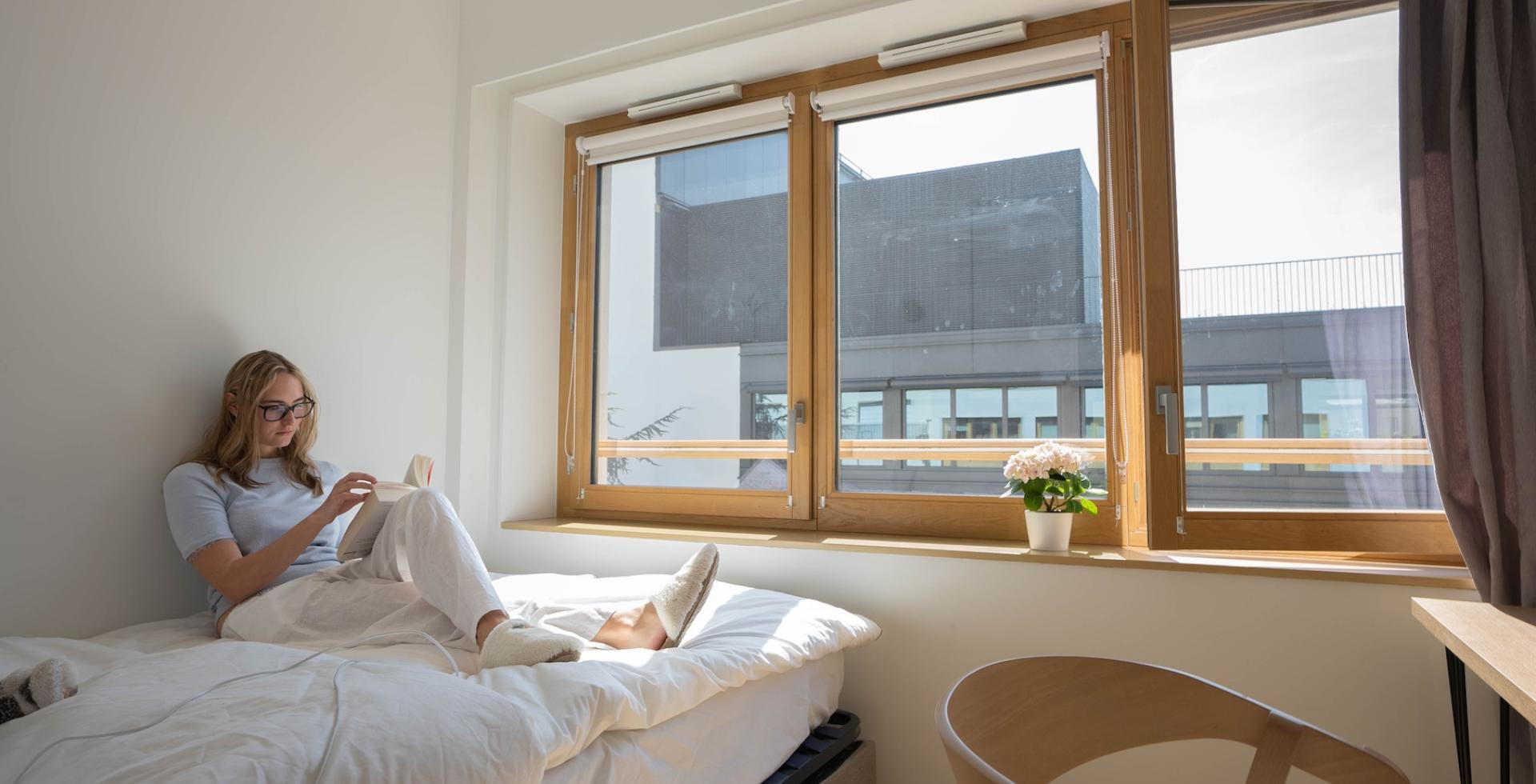
Apartment Rental or Shared Accommodation
The city of Paris is one of the most densely populated in the world and as such is known for the compactness of its accommodation options. For this reason, the main type of accommodation available for student budgets will be single-bedroom or studio apartments. Larger apartments can be rented out to multiple tenants in a flat-share, and some owners or residents will sub-let a room and share amenities. The average price range is roughly 600€ to 1300€ charged monthly depending on size, location, and amenities.
Apartments for One (Studio)
There is an appart’ for every taste and budget in Paris from modest chambre de bonne (“maid’s room”) to palatial suites. Building codes within the city limits are strict so rather than build upwards, Paris has tended to fragment its historically luxurious apartments into smaller units. The low end and legal limitation is 15 square meters (160 square feet) while 320-400 sq. feet is average for a studio apartment and even smaller one-bedroom units.
While regulations are strict and tenants are usually well covered, there are always risks to contend with on the open market. AUP’s housing office can help you avoid common pitfalls and potential scams as you navigate the administrative complexities of your rental process.
Flat-share or Sublet
Shared accommodation can come in different forms, each with specific administrative requirements. Sharing an apartment (or even a house…) with roommates can be a fantastic solution to save on costs. What the British call flat-sharing is known in France as a collocation or colloc’ and these arrangements can become the backdrop for some of your best college memories. However it is important to make sure your contract, rent, and utilities are transparent for all parties and that you have the appropriate insurance coverage.
A sublet or sous-location can also be a great solution particularly for the short term either with a host family or in flat-shares with individual room offerings where you share certain amenities like bathrooms and kitchens (though we recommend students generally opt for a private bathroom).
While regulations are strict and tenants are usually well covered, there are always risks to contend with on the open market. AUP’s housing office can help you avoid common pitfalls and potential scams as you navigate the administrative complexities of your rental process.
The Deposit and Other Administrative requirements
The paperwork involved in a rental in France can be intimidating, but this is how tenants benefit from such extensive protection from fraud and predatory landlords. AUP’s housing office will help you understand the intricacies of the rental contract, so be sure to contact them.
Deposit: Your deposit, often amounting to 2 months upfront is essentially kept in escrow until the departure inventory (or état des lieux) which determines if the landlord has legal grounds to keep the deposit in order to renovate the property due to damages, wear and tear, etc. If your rental is in good enough condition for the landlord, your deposit will be refunded within 60 days of the contract end date.
Guarantor: In order to establish your ability to cover rent and utilities for the duration of your stay, your dossier must often include financial revenue information.
Ornate stair-cases with no elevator and other quirks can be surprising to those used to more modern building standards.
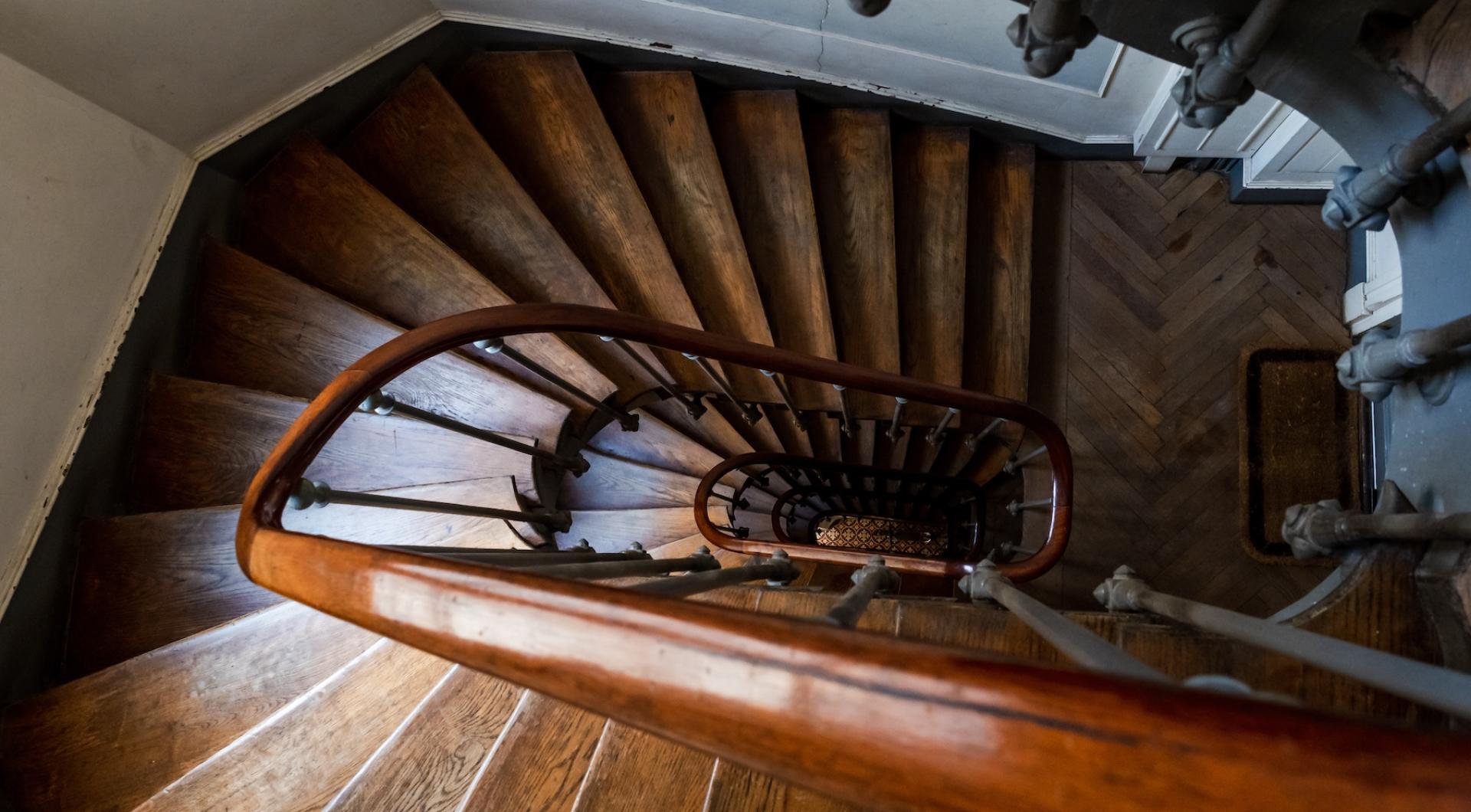
Make sure you know what you are signing up for when you visit your potential apartment or when negotiating with landlords.
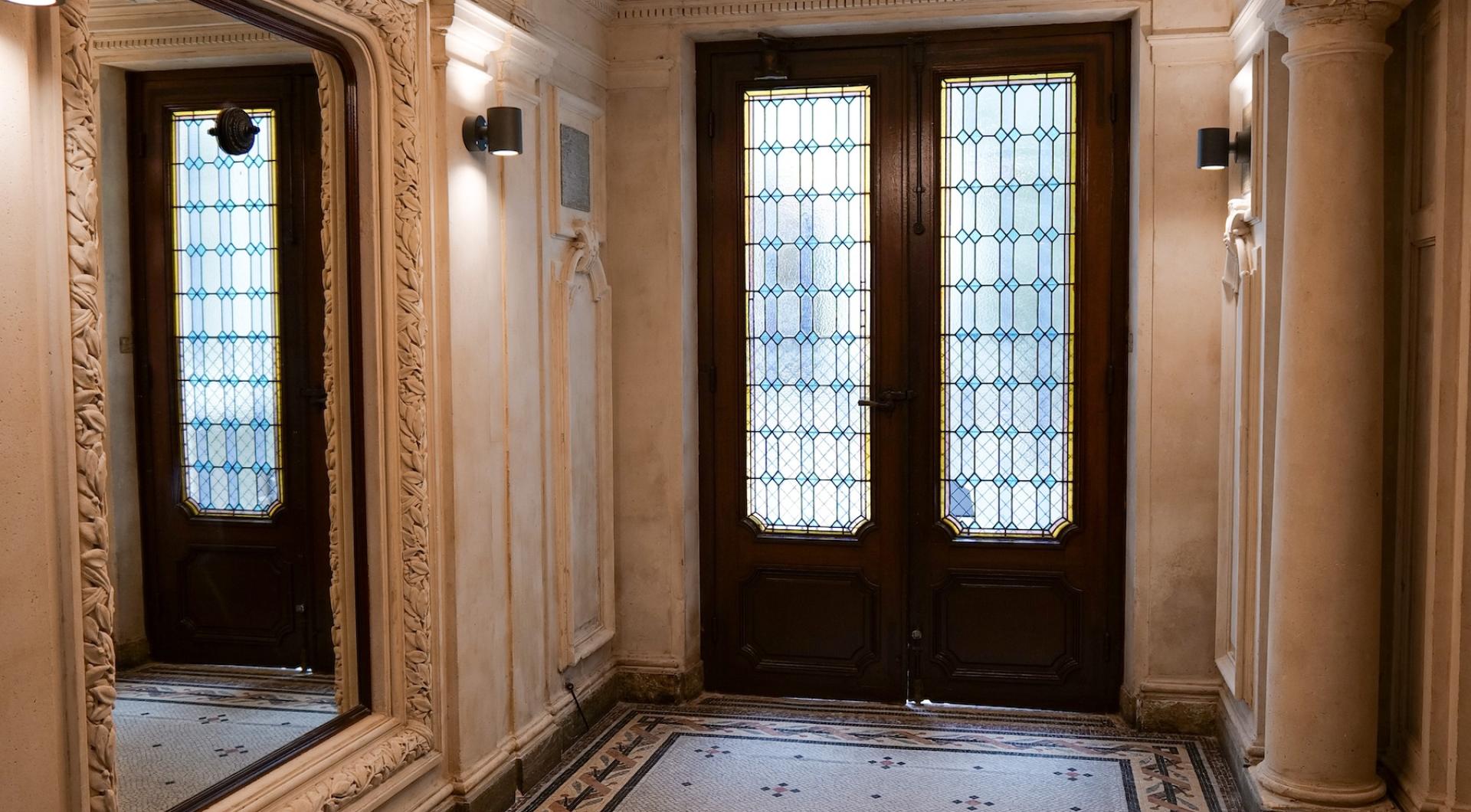
The city's abundant Haussemannian architecture makes it very picturesque.
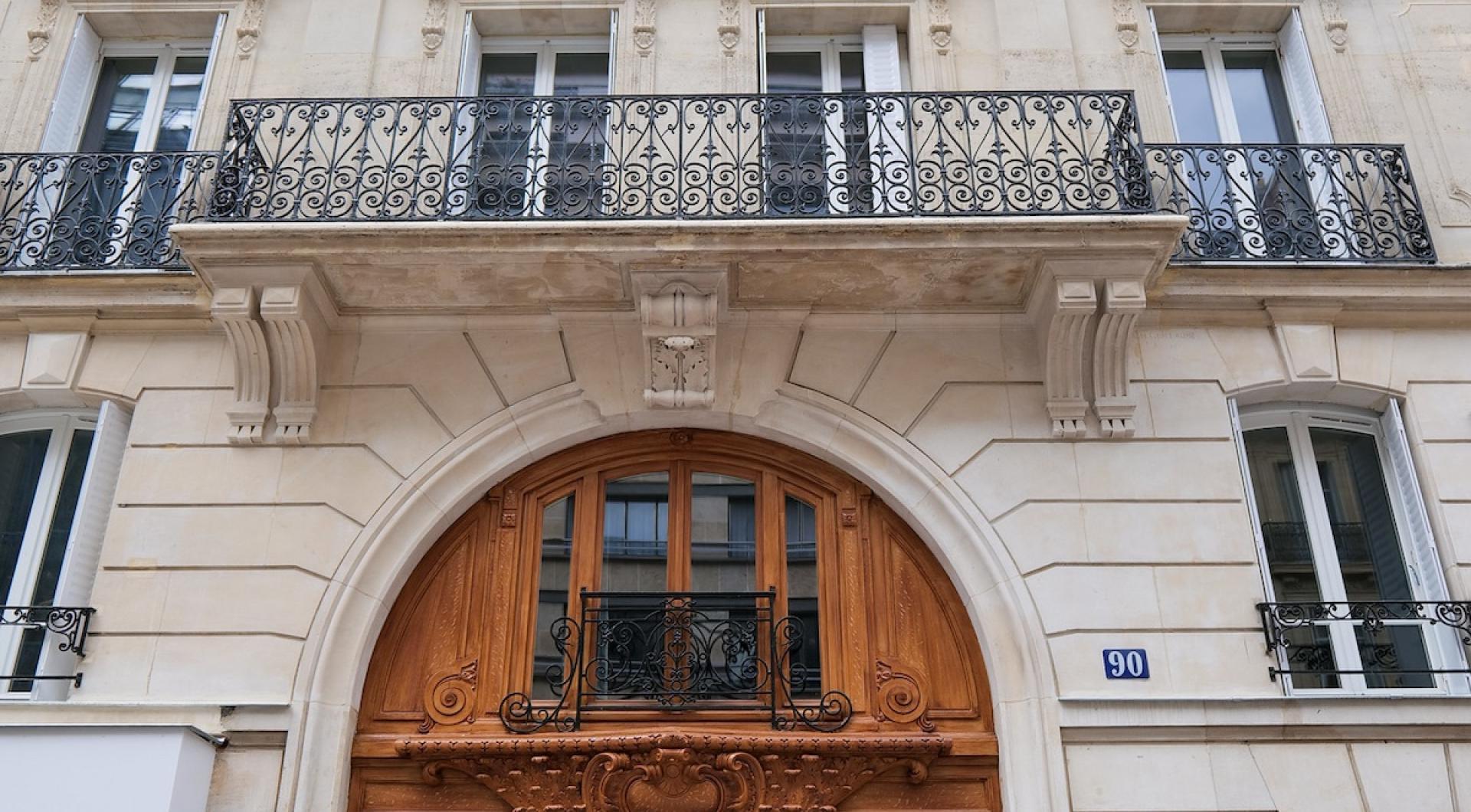
Detailing on the ceilings or with accents like grand fireplaces are common in many older buildings.

La Vie de Quartier
Chambre de Bonne / Shared Bathroom / No Elevator
Many of the apartments buildings in Paris are over 100 years old. The building codes that make the city so picturesque when you gaze down the Haussemannian boulevards also make it difficult to renovate the interiors and amenities.
Ornate stair-cases with no elevator, thin walls, creaky floors, shared bathrooms on the landing, and sometimes dubious internet cabling are some of the issues that can puzzle new arrivals who are used to more modern building standards. So make sure you know what you are signing up for when you visit your potential apartment or when negotiating with landlords.
The Laundry and the Kitchen
With space at a premium, large refrigerators and clothes dryers are considered luxury items in Paris.
Most inner-city and many suburban residents air-dry their clothes, which is better for the environment, the clothes, and your health, but can pose problems when your interior humidity gets too high with limited airflow (insider tip: consider investing in a dehumidifier if your place does not get adequate ventilation for drying clothes).
Refrigerators are often what Americans would call a mini-bar, and some have no freezer units at all. While counter-intuitive, this lack of refrigeration or large pantry space is why many Parisians tend to shop fresh and local, finding the best value in the shops nearby and planning meals only for the next few days. Of course you can choose to eat out and order in every day if you can afford it, but the quality and variety of cheap ingredients and fresh whole foods available to you in Paris is simply staggering and it would be a real missed opportunity not to learn a few tricks in the kitchen while you are here.
Resources
Garantme
Students can apply online and receive a certificate within 24 hours – that certificate will attest that the student is using the service as an alternative guarantor for their housing search and rental.
https://garantme.fr/
Visale
Visale is a free government guarantor service for renters between 18 and 30 years old. Please note that this resource is in French.
www.visale.fr
Head to the AUP website to download an example walkthrough form and templates for a rent receipt or letter of notice.
If you are interested in applying for the CAF, and if you have signed a lease and your apartment is eligible, please book an appointment with the Housing Office. The CAF is a governmental subsidy program that offers housing benefits called Aide personalisee au logement (APL). For a full-time student with no income, you can receive €200 to €300 per month from the CAF. Nonetheless, it is important that you do not count on the CAF to pay your rent, as the process is quite lengthy; though the subsidy is applied retroactively, you will likely not start receiving it until well into your rental period.
Visit the AUP website for information about storage and shipping services to help with your move to Paris.
